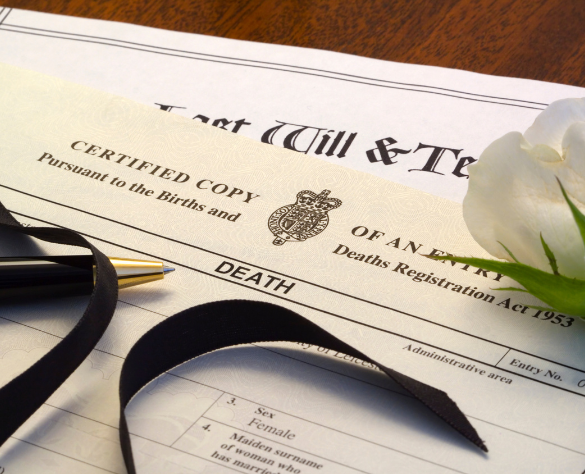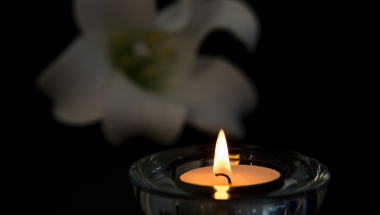
When you attend to register the death, the Registrar will need to see the following documents:
- A ‘Medical Certificate of Cause of Death’ (as issued by the doctor who certified the death).
- If the doctor has had to inform the Coroner about the death, the Coroner may need to issue another certificate and in that case, the Registrar will need the Coroner’s document in order to register the death.
- The deceased’s N.H.S. medical card (if available).
- Any pension book, certificate or document relating to any pension or benefits that the deceased was receiving from public funds.
- It is also useful if you have the deceased’s passport, birth certificate and (if applicable) marriage certificate to hand but these documents are not essential provided you are able to give the Registrar the correct information.
Registering a death...
One of the few things the Funeral Director is not permitted do for you is the registration of the death. So here is some advice for those registering a death. If you are in any doubt, please call us for advice:
The registration should be carried out by one of the following people:
- A relative, usually the closest one.
- Someone who was present at the death.
- Someone who is instructing the funeral director.
- In certain circumstances another person may qualify as an informant but this is a very rare occurrence. If you think that this may be the case then you should contact the Register Office for further advice.
In addition the registrar will need to know the following information:
- The date and place of death.
- The deceased’s last (usual) address.
- The deceased’s full names and surnames (and the maiden surname where appropriate).
- The deceased’s date and place of birth (town and county if born in the United Kingdom, and country if born abroad).
- The deceased’s occupation and the name and occupation of their spouse, and of previous spouses (if appropriate).
- Whether the deceased was receiving a pension or allowance from public funds.
- If the deceased was married, the date of birth of the surviving widow or widower.
- Other statistical information (some of which you are required by law to give).



